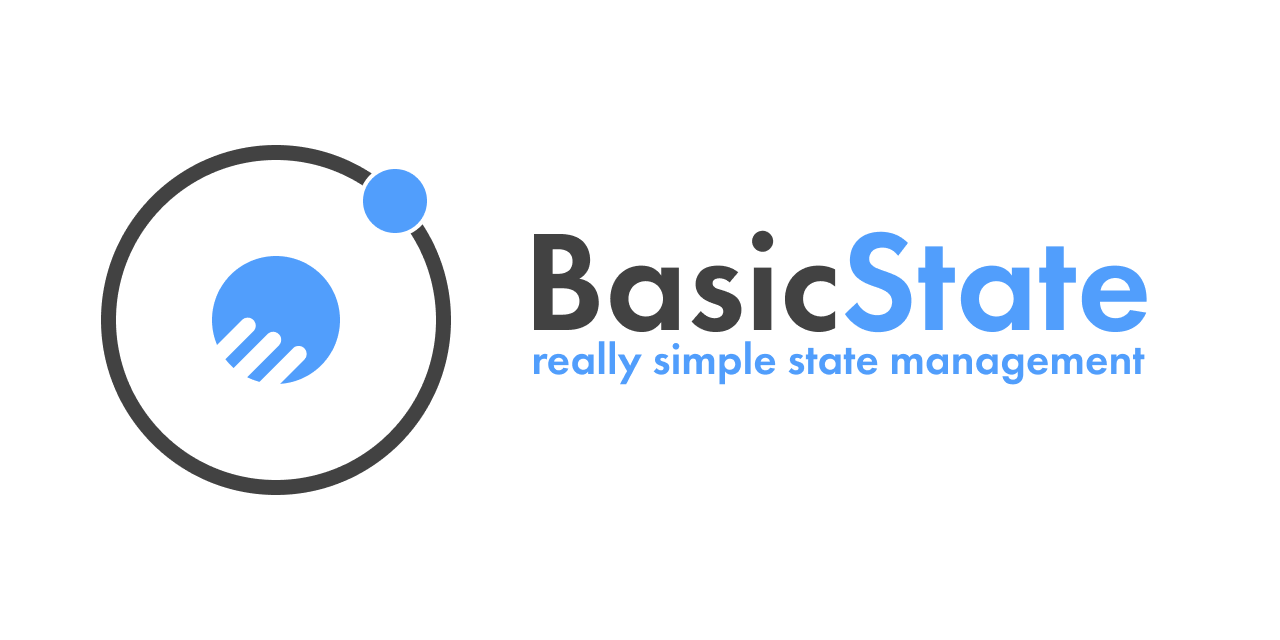This project is now archived. No more updates will be made; however, both the repo and downloads will remain available.
BasicState is a really simple key-value based state management solution. It makes use of BindableEvents to allow your project to watch for changes in state, and provides a simple but comprehensive API for communication with your state objects. Think Rodux, but easier!
Installation
Rojo
You can use git submodules to clone this repo into your project’s packages directory:
$ git submodule add https://github.com/csqrl/BasicState packages/BasicState
Once added, simply sync into Studio using the Rojo plugin.
0.5.x
Download/clone this repo on to your device, and copy the /src directory into your packages directory.
Wally
Add BasicState to your wally.toml and run wally install
[package]
name = "user/repo"
description = "My awesome Roblox project"
version = "1.0.0"
license = "MIT"
authors = ["You (https://github.com/you)"]
registry = "https://github.com/UpliftGames/wally-index"
realm = "shared"
[dependencies]
BasicState = "csqrl/BasicState@^0.2.6"
$ wally install
Roblox-TS (unofficial)
While this package doesn’t officially support TypeScript, bindings are available under the @rbxts/basicstate package, which can be installed using npm or yarn.
$ npm i @rbxts/basicstate
$ yarn add @rbxts/basicstate
$ pnpm add @rbxts/basicstate
TypeScript bindings are provided by @tech0tron. Please file any issues for the npm package over on their repo.
Manual Installation
Grab a copy from the Roblox Library (Toolbox), or download the latest .rbxm/.rbxmx file from the releases page and drop it into Studio.
Usage
Here’s a quick example of how BasicState can be used:
local BasicState = require(path.to.BasicState)
local State = BasicState.new({
Hello = "World"
})
State:GetChangedSignal("Hello"):Connect(function(NewValue, OldValue)
print(string.format("Hello, %s; goodbye %s!", NewValue, OldValue))
end)
State:SetState({
Hello = "Roblox"
})
--[[
Triggers the RBXScriptConnection above and prints
"Hello, Roblox; goodbye World!"
--]]
Usage with Roact:
-- Store.lua
local BasicState = require(path.to.BasicState)
local Store = BasicState.new({
Hello = "World"
})
return Store
-- MyComponent.lua
local Roact = require(path.to.Roact)
local MyComponent = Roact.Component:extend("MyComponent")
local Store = require(script.Parent.Parent.Store)
function MyComponent:render()
return Roact.createElement("TextButton", {
Text = string.format("Hello, %s!", self.state.Hello),
--> Displays "Hello, World!"
[Roact.Event.MouseButton1Click] = function()
Store:SetState({ Hello = "Roblox" })
--> Will re-render and display "Hello, Roblox!"
end
})
end
-- Wrap the component with the BasicState store
return Store:Roact(MyComponent)
Documentation
Please refer to the documentation site for a full overview of the exported API and further examples on how to use this module.
